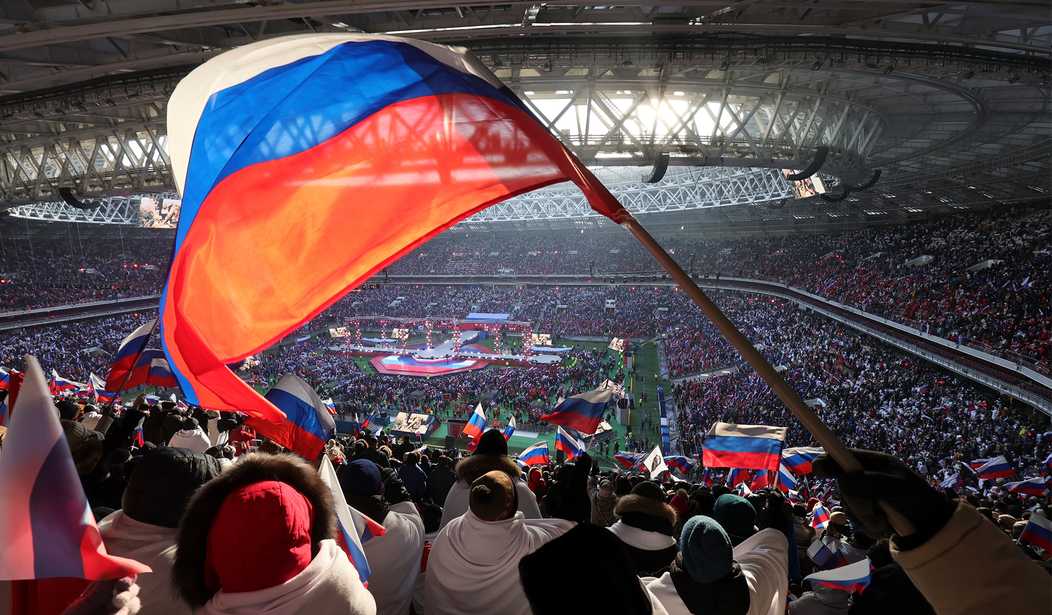War takes a toll on civil society. And for the Russian Federation, the stresses and strains are starting to show in the growing number of private militias — militias that are increasingly independent of the Russian army.
That independence has so worried Russian President Vladimir Putin that his defense minister, Sergei Shoigu, ordered all independent militias to sign contracts with the Ministry of Defense.
The leader of the Wagner mercenary group Yevgeny Prighozin responded by saying “Wagner will not sign any contracts with Shoigu.” The two power centers in the Russian government have been feuding for months — a feud that broke out in the open when Russian soldiers fired on Wagner troops as they retreated from Bakhmut, the small crossroads in southern Ukraine of little strategic significance but which Ukraine expended a lot of effort to keep.
Prighozin recommended that the Chechen militia Akhmat, effectively the personal guard of the head of the Chechen Republic, Ramzan Kadyrov, take over the fighting in Bakhmut for Wagner. Those troops have served in the occupied areas of Ukraine and have also been used to “encourage” retreating Russian troops to hold their ground.
There are three other private militias including two private armies run by the energy giant Gazprom and one militia owned by Gennady Timchenko, who ranks eighth on Forbes’ Russian billionaire list.
As the war drags on and the elites become increasingly cynical about the outcome — and of Putin’s leadership — there is a real prospect of a falling out among Putin loyalists once the Russian president exits the stage. And the private militias may have a big say in Putin’s successor.
Even before Putin dies, a scramble for position will add to the stresses and strains on the Russian Federation — a sprawling, transcontinental nation of 83 regions and ethnic republics.
And perhaps the war will go so badly for Russia that Putin’s position will become untenable. The aura of invincibility surrounding him has already been severely tarnished by what’s happened in Ukraine. Even without outright defeat, the damage done to Russia’s economy and the discontent of the masses calls into question Putin’s survival as a leader.
Putin’s power center, however, is secure and for now, he owns the security services, the media, and the judiciary. It’s likely that the only way Putin leaves office is feet first.
Also for our VIPs: Biden Risking Another ‘Forever War’ by Moving to Invite Ukraine to Join NATO
So why isn’t anyone talking about Russia’s possible dissolution? It would certainly be a world-historical event easily on par with the dissolution of the old Soviet Union. “It is a dangerous lack of imagination, considering the potential for Russia’s collapse and disintegration,” writes Alexander J. Motyl, a professor of political science at Rutgers University-Newark.
There are various scenarios for what might happen in Russia after defeat in Ukraine becomes even clearer. Most likely is Russian President Vladimir Putin’s departure from office, followed by a vicious power struggle among the extreme right-wing nationalists who want to continue the war effort and destroy the existing political hierarchy, authoritarian conservatives who have a stake in the system, and a resurgent semi-democratic govement committed to ending the war and reforming Russia. We don’t know who will win, but we can confidently predict that the power struggle will weaken the regime and distract Russia from what remains of its war effort.
But the most plausible scenario given the non-Russian makeup of much of the territory of the current Russian Federation is a simple collapse — the fate of many empires throughout history after a war.
Given Russia’s vast expanse, long history of restive regions, and large non-Russian ethnicities—all a result of centuries of imperial conquest—the one scenario that deserves much more attention is a disintegration of centralized control and breakup of the federation. There is a rich history of state collapse following wars, revolutions, system breakdowns, economic crises, and other epochal events. Napoleon’s empire collapsed after his disastrous march on Moscow and subsequent defeat at the Battle of Leipzig. In 1918, the Ottoman, Austro-Hungarian, German, and Russian empires all collapsed in military defeat. Of course, people, decisions, and policies played a role, but ultimately it was war and the attendant economic and social crises that pushed these states over the edge into political chaos and often violence.
They’ve been predicting the end of the Russian Federation since it was first formed in 1991. And even without Putin, the Federation is likely to survive although probably in a much less united form. Russia itself will become a vassal of China — the consequence of Putin turning to China for help in the war. But you don’t just erase a nation with a couple of thousand nuclear weapons from the map. And keeping those weapons in their silos will be the primary concern of the West going forward.
